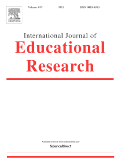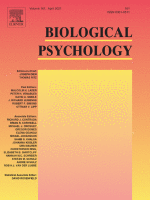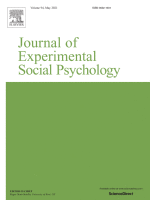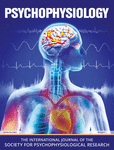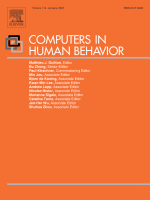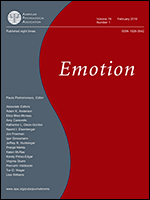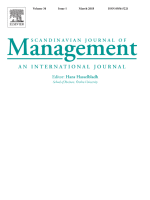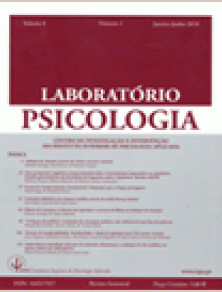PUBLICATIONS

Preprints
Hartmann, H., et al. (2025, December). Tracking and mainstreaming replications in the social, cognitive, and behavioral sciences. https://osf.io/preprints/metaarxiv/ad2w6_v1
Kovacs, M., Jaquiery, M., Algermissen, J., Arriaga, P., Gau, R., Gokce, A., … Aczel, B. (2022, September 19). Lab manuals for efficient and high-quality science in a happy and safe work environment. https://doi.org/10.31222/osf.io/bzcxg
Zezelj, I., (…) Arriaga, P., (...) Žukauskien, R. (2025). Common drivers of questionable health behaviours identified across 33 countries and five continents. Preprint PsyArXiv. https://osf.io/preprints/psyarxiv/tkj7u_v1
Gloy, K., Marzuki, A. A., Schaefer, A., (...) Arriaga, P., (...) et al. (IPA, In Principle Accepted). Revisiting the Neurocognitive Correlates of the Behavioral Inhibition and Activation Systems. In Principle Accepted @ Cortex. https://doi.org/10.17605/OSF.IO/V39G8
Marzuki, A. A., Gloy, K., (…) Arriaga, P., et al. (IPA, In Principle Accepted). Error-and inhibitory-related brain activity associated with political ideology: A multi-site replication study. In Principle Accepted @ Cortex. PsyArXiv: https://doi.org/10.31234/osf.io/39vqj
Galinha, I. et al. (2024). MindRegulation: Randomized Controlled Trial of the Effects of a Relaxation and Guided Imagery Intervention on the psychophysiological well-being, socioemotional regulation, cognitive and academic development of children in school. Preprint @ Research Square, https://doi.org/10.21203/rs.3.rs-3906571/v1
Forthcoming (accepted)

Cvetkovic, A., … Arriaga, P. … et al. (2026, accepted). User Trust in AI and Major Tech Companies in Twelve Countries. Behaviour & Information Technology. https://doi.org/10.1080/0144929X.2026.2619648

Adetula, A., et al. (2026, accepted Stage 2 of the RR). The Evaluation of Harm and Purity Transgressions in Africans: A Paradigmatic Replication of Rottman and Young (2019). Advances in Methods and Practices in Psychological Science. [Registered report]

Oksanen, A. et al. (2026). Mapping AI Learning Readiness Self-Efficacy Worldwide: Scale Validation and Cross-Continental Patterns. Computers in Human Behavior: Artificial Humans.
2025 - 2024
Buchanan, E. M., et al. (2025). Measuring the Semantic Priming Effect Across Many Languages. Nature Human Behavior. https://doi.org/10.1038/s41562-025-02254-x

Arriaga, P., Isabel Neto, Correia, F. & Soares, A. (2025). Ethical Considerations in Designing and Testing Robots for Children in Educational Settings. In Lampropoulos, G., Papadakis, S. (eds), Social Robots in Education, Studies in Computational Intelligence (pp. 169-203).: Springer. https://doi.org/10.1007/978-3-031-82915-4_8

Madeira, M., Rosa, P. J., & Arriaga, P. (2025). Contribution to an Ecological Worldview: Adaptation and validation of the New Ecological Paradigm Scale to the European Portuguese language. European Review of Applied Psychology, 75 (1), 100964. https://doi.org/10.1016/j.erap.2023.100964
Pinto, A. M., Figueiredo, C., Geenen R. , Castilho, P., Silva, J. A. P., Morris, E. M. J....Sandoz, E. (2025). Introducing the Emotions-Affect Systems Elicitation (EASEL-3) index: A new tool for measuring affect regulation systems' activation. Clinical Psychology and Psychotherapy. 32 (4). https://doi.org/10.1002/cpp.70126
Chen, SC., Buchanan, E.M., Kekecs, Z. .... Arriaga, P. (...) et al. (2025). Investigating object orientation effects across 18 languages. Current Psychology,. https://doi.org/10.1007/s12144-025-08304-x
Kowal, M., (…), Arriaga, P. (…) Caetano Santos, A. et al. (2025). Cross-cultural data on romantic love and mate preferences from 117,293 participants across 175 countries. Scientific Data, 12, 1103. https://doi.org/10.1038/s41597-025-05365-2
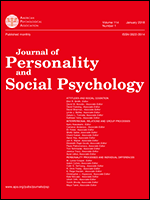
Eastwick, P. W., , Sparks, J., Finkel, E.J., Meza, E.M., Adamkovič, M., Adu, P., (...) Arriaga, P., et al., (2025). A Worldwide Test of the Predictive Validity of Ideal Partner Preference Matching. Journal of Personality and Social Psychology, 128(1), 123–146. https://doi.org/10.1037/pspp0000524

Phills, C.E., (…) Arriaga, P., et al. (2025). Multi-region investigation of ‘man’ as default in attitudes. PLoS One 20(6), e0323938. https://doi.org/10.1371/journal.pone.0323938

Marijose Páez Velázquez, Bobrowicz-Campos, E. & Arriaga, P. (2025). Towards a Typology of Prompts for Human-AI Interaction: Mapping Intent and Complexity with Lay Users. In 11th World Congress on Electrical Engineering and Computer Systems and Sciences (EECSS'25). https://doi.org/10.11159/mhci25.122
Arriaga, P., & Silva, C. (2025). ‘‘Back to the start’’: A replicação como um dos pilares da ciência ["Back to the Start: Replication as a Pillar of Science]. Cadernos de Laboratorio. In M. Prada, & D. Guedes (Eds.), Caderno de laboratório: Guia prático para investigadores/as (Vol. II, pp. 25-40). Centro de Estudos Internacionais do Instituto Universitário de Lisboa. ISBN: 2976-0615.
URL: http://hdl.handle.net/10071/35034 DOI: https://doi.org/10.31234/osf.io/g8w9k_v2
Arriaga, P., & Silva, C. (2025). "Keep it FAIR”: Partilha de dados e materiais em acesso aberto [“Keep it FAIR”: Sharing data and materials in open access]. In M. Prada, & D. Guedes (Eds.), Caderno de laboratório: Guia prático para investigadores/as (Vol. III, pp. 19-32). Centro de Estudos Internacionais do Instituto Universitário de Lisboa.
Arriaga, P., Simões, M. P., Marques, S., Freitas, R., Pinto, H. D., Prior, M. P., Candeias, S., Rodrigues, M. (2024). From Art to Insight: The Role of a Creative Arts Therapies Group Workshop on College Students' Well-Being, Self-Awareness, and Loneliness. The Arts in Psychotherapy, 90, 102188

Hall, B. F., Wagge, J. R., Pfuhl, G., … Arriaga, P., Lewis, S. (2024). Registered Replication Report: A Large Multilab Cross-Cultural Conceptual Replication of Turri, Buckwalter, & Blouw (2015). Advances in Methods and Practices in Psychological Science, 7(4). https://doi.org/10.1177/25152459241267902
Luong, R., McAuliffe, W., Flake, J (…) Caetano, A., Arriaga, P. (…) et al. (2024). Structural Validity Evidence for the Oxford Utilitarianism Scale Across 15 Languages. Psychological Test Adaptation and Development, 5 (1), 175–191. https://doi.org/10.1027/2698-1866/a000061
Szkody, E. (...) Arriaga, P., Reis, E. et al. (2024). Social Support and Help-Seeking Worldwide. Current Psychology, 43, 20165–20181. https://doi.org/10.1007/s12144-024-05764-5
Reis, E., Moleiro, C., & Arriaga, P. (2024). Intimate Partner Violence directed at Men: Experiences of Violence, Help-seeking, and potential Gender Role Conflict among Portuguese Men. Sexuality & Culture, 28, 21-40. https://doi.org/10.1007/s12119-023-10108-9
2023-2022
Duarte, R. B., Correia, F. Arriaga, P., & Paiva, A. (2023). AI Trust: Can Explainable AI enhance warranted trust? Human Behavior and Emerging Technologies, 4637678. https://doi.org/10.1155/2023/4637678
Reis, E., Moleiro, C., & Arriaga, P. (2023). Intentions to call a helpline among victims of Intimate Partner Violence: The role of the Theory of Planned Behavior and Gender Role Conflict. Violence and Victims. https://doi.org/10.1891/VV-2022-0036
Oliveira, R. & Barreiros, J., Paiva, A., & Arriaga, P. (2023). The role of humor in social, psychological and physical well-being. HUMOR: International Journal of Humor Research.
Pownall, M., Azevedo, F., (...)Arriaga, P. et al. (2023). The impact of open and reproducible scholarship on students’ scientific literacy, engagement, and attitudes towards science: A review and synthesis of the evidence. Royal Society Open Science, 10 (5). https://royalsocietypublishing.org/doi/10.1098/rsos.221255
Santos, A. C., Simões, C., Melo, M. H. S., Santos, M., Freitas, I., Branquinho, C., Cefai, C., Arriaga, P. (2023). A systematic review of the relationship between social and emotional competencies and student engagement in youth. Educational Research Review.100535. https://doi.org/10.1016/j.edurev.2023.100535
Białek, M., Meyers, E. A., Arriaga, P., Harateh, D., & Urbanek, A. (2023). COVID-19 vaccine skeptics are persuaded by pro-vaccine expert consensus messaging. Journal of Experimental Psychology: Applied.
Soares, A. A., Piçarra, N., Giger, J.-C., Oliveira, R., & Arriaga, P. (2023). Ethics 4.0: Ethical dilemmas in healthcare mediated by social robots. International Journal of Social Robotics. https://doi.org/10.1007/s12369-023-00983-5
Cosme, G., Arriaga, P., Rosa, P. J., Mehta, M., & Prata, D. (2023). Temporal profile of intranasal oxytocin in the human autonomic nervous system at rest: an electrocardiography and pupillometry study. Journal of Psychopharmacology.
Buchanan, E., (…), Arriaga, P. (…) et al. (2023). The Psychological Science Accelerator's COVID-19 Rapid-Response Dataset. Scientific Data, 10, 87. https://doi.org/10.1038/s41597-022-01811-7
Grossmann, I., Rotella, A. M., Hutcherson, C., Sharpinskyi, C., (...) Arriaga, P., … Wilkening, T. (2023). Insights into the accuracy of social scientists' forecasts of societal change. Nature and Human Behavior. https://doi.org/10.1038/s41562-022-01517-1
Kekecs, Z., Palfi, B., Szaszi, B., (...) Arriaga, P., Oliveira, R., … Aczel, B. (2023). Raising the value of research studies in psychological science by increasing the credibility of research reports: The Transparent Psi Project. Royal Society Open Science., 10 (2), 191375. https://doi.org/10.1098/rsos.191375
Supplementary material: https://doi.org/10.6084/m9.figshare.c.6402482
Chambel, T., Arriaga, P., Fonseca, M. J., Langlois, T., Postolache, O., Ribeiro, C., Piçarra, N., Alarcão, S. M., & Jorge, A. (2023). That’s AWESOME: Awareness While Experiencing and Surfing On Movies through Emotions. Proceedings of the 2023 ACM International Conference on Interactive Media Experiences Workshops, 110–117. https://doi.org/10.1145/3604321.3604330
Piçarra, N., Reis, E., Chambel, T. Arriaga, P. (2022). Searching, navigating, and recommending movies through emotions: A scoping review. Human Behavior and Emerging Technologies. Article ID 7831013 | https://doi.org/10.1155/2022/7831013
Mendes, D, Correia S, Jorge P, Brandão T, Arriaga P., & Nunes, L. (2023). Multi-camera person re-identification based on trajectory data. Applied Sciences, 13(20):11578. https://doi.org/10.3390/app132011578

Correia, S., Mendes, D., Jorge, P., Brandão, T., Arriaga, P., & Nunes, L. (2023). Occlusion-Aware Pedestrian Detection and Tracking. In 2023 30th International Conference on Systems, Signals and Image Processing (IWSSIP), pp. 1-5. Ohrid, North Macedonia: IEEE. https://doi.org/10.1109/IWSSIP58668.2023.10180296

Hajdu, N., (…) Arriaga, P., Roibeiro, R. et al. (2022). Contextual factors predicting compliance behavior during the COVID-19 pandemic: A machine learning analysis on survey data from 16 countries.
PloS ONE, 17(11): e0276970. https://doi.org/10.1371/journal.pone.0276970

Dorison, C., (…) Arriaga, P. (…) Santos, A. C., (…) Ribeiro, R. (…) Oliveira, R., (…) Coles, N. A. (2022). In COVID-19 health messaging, loss framing increases anxiety with little-to-no concomitant benefits: Experimental evidence from 84 countries. Affective Science. https://doi.org/10.1007/s42761-022-00128-3

Rita, P., Arriaga, P., Guerreiro, J., & Moura, A. (2022). Locals versus foreigners’ emotion-motivational responses towards traditional food and non-traditional food. Spanish Journal of Marketing.

Kowal, M. (…) Arriaga, P. (…) Santos, A. (…) et al. (2022). Predictors of enhancing human physical attractiveness: Data from 93 countries. Evolution and Human Behavior.

Fontes, A., Pereira, C., Menezes, S., Soares, A., Almeida, P., Carvalho, G., Arriaga, P. (2022). Predictors of health-protective and helping behaviors during the Covid-19 pandemic: The role of social support and resilience. Psychological Reports.

Reis, E., Arriaga, P., Moleiro, C. (2022). Men who suffered Intimate Partner Violence: Impressions about existing public campaigns and recommendations for new ones. Journal of Interpersonal Violence. https://doi.org/10.1177/08862605221108075

Santos, A., Simões, C., Branquinho, C., & Arriaga, P. (2022). Truancy: the relevance of resilience-related internal assets, student engagement and perception of school success in youth living with parents and in residential care. Child Abuse & Neglect.

Santos, A. C., Arriaga, P., Daniel, J. R., Cefai, C., Melo, M. H.S., Psyllou, A., Shieh, J-J, Schutte, N., Furtado, C., David, C.H., Azevedo, M. C., Andreou, E., Simões, C. (2022). Social and emotional competences as predictors of student engagement in youth: A cross-cultural multilevel study. Studies in Higher Education. https://doi.org/10.1080/03075079.2022.2099370

Legate, N., (…) Arriaga, P., Santos, A. C., (…) Ribeiro, R. (…)Oliveira, R., (…) (2022). A Global Experiment on Motivating Social Distancing during the COVID-19 Pandemic. Proceedings of the National Academy of Sciences (PNAS), 119 (22), https://doi.org/10.1073/pnas.2111091119
Preprint. https://doi.org/10.31234/osf.io/n3dyf
Oliveira, R., & Arriaga, P. (2022). A systematic review of the effects of laughter on blood pressure and heart rate variability. Humor: International Journal of Humor Research. https://doi.org/10.1515/humor-2021-0111
Bago, B., Aczel, B., Kekecs, Z.,(…) Arriaga, P. (...) et al. (2022). Situational factors shape moral judgments in the trolley dilemma in Eastern, Southern, and Western countries in a culturally diverse sample. Nature Human Behaviour.
2021-2020
Arriaga, P., Ribeiro, R., Lima, L., Galinha, I., & Pires, A. (2021). Cante pela sua saúde: Manual do programa da intervenção de canto em grupo para seniores. Iscte. ISBN: 978-989-781-553-9 (print); 978-989-781-554-6 (Digital/online) https://doi.org/10.15847/CISCANTESAUDE
Arriaga, P., Ribeiro, R., Azevedo, S., Lima, L., Galinha, I., & Pires, A. et al. (2021). Cante pela Sua Saúde: Memória do Projeto Grupos de Canto para Seniores. Iscte. https://dx.doi.org/10.15847/CISCANTESAUDEMEMORIA

Santos, A. C., Simões, C., & Arriaga, P. (2021). Portuguese validation of the Cognitive Emotion Regulation Questionnaire short version in youth: Validity, reliability, and invariance across gender and age. European Journal of Developmental Psychology. https://doi.org/10.1080/17405629.2021.2011201

Piçarra, N., Silva, N., Chambel, T., & Arriaga, P. (2021). What movie will I watch today? The role of online review ratings, reviewers’ comments, and user’s gratification style. Projections, the Journal for Movies and Mind., 15 (3), 24–46. https://doi.org/10.3167/proj.2021.150302

Oliveira, R. A., Arriaga, P., Stroessner, S., & Paiva, A. (2021). Preliminary validation of the European Portuguese version of the Robotic Social Attributes Scale (RoSAS). Human Behavior and Emerging Technologies, https://doi.org/10.1002/hbe2.311
Paiva, A., Correia, F., Oliveira, R., Santos, F., & Arriaga, P. (2021). Empathy and prosociality in social agents. In B. Lugrin, C. Pelachaud, & D. Taum (Eds), Handbook on Socially Interactive Agents (Vol.1, pp. 385-431). ACM. https://doi.org/10.1145/3477322.3477334

Wang, K., (...) Arriaga, P.(...) et al. (2021). A multi-country test of brief reappraisal interventions on emotions during the COVID-19 pandemic. Nature Human Behaviour, 5 (8), 1089–1110. https://doi.org/10.1038/s41562-021-01173-x

Arriaga, P, Esteves. F., Pavlova, M. A., & Piçarra, N. (Eds). (2021). Coronavirus Disease (COVID-19): The Impact and Role of Mass Media During the Pandemic. Lausanne: Frontiers Media SA. https://doi.org/10.3389/978-2-88971-481-0
Arriaga, P., Esteves. F., Pavlova, M. A., & Piçarra, N. (2021). Editorial: Coronavirus Disease (COVID-19): The Impact and Role of Mass Media During the Pandemic. Frontiers in Psychology. https://doi.org/10.3389/fpsyg.2021.729238
Alves.Oliveira, P., Arriaga, P., Xavier, C., Hoffman, & G., Paiva, A. (2021). Creativity landscapes: Systematic review spanning 70 Years of creativity interventions for children. The Journal of Creative Behavior. https://doi.org/10.1002/jocb.514
Santos, A. C., Simões, C., Ceifai, C., Freitas, E., & Arriaga, P. (2021). Emotion regulation and student engagement: Age and gender differences across adolescence. International Journal of Educational Research, 109, 101830. https://doi.org/10.1016/j.ijer.2021.101830
Lima, C. F., Arriaga, P, Anikin, A., Pires, A. R., Frade, S., Neves, L., & Scott, S. K. (2021). Authentic and posed emotional vocalizations trigger distinct facial responses. Cortex, 141, 280-292. https://doi.org/10.1016/j.cortex.2021.04.015
Santos, A. C., Arriaga, P., Simões, C. (2021). Psychometric validation of the Portuguese version of the Measure of Anxiety in Selection Interviews. International Journal of Selection and Assessment, 29(2), 285–292. https://doi.org/10.1111/ijsa.12323
Santos, A. C., Arriaga, P., & Simões, C. (2021). Catching the audience in a job interview: Effects of emotion regulation strategies on subjective, physiological, and behavioural responses. Biological Psychology, 162, 108089. https://doi.org/10.1016/j.biopsycho.2021.108089
Zickfeld, J. (...) Arriaga, P. (...) et al.. (2021). Tears evoke the intention to offer social support: A systematic investigation of the interpersonal effects of emotional crying across 41 countries. Journal of Experimental Social Psychology, 95, 104137. https://doi.org/10.1016/j.jesp.2021.104137
REGISTERED REPORT

Oliveira, R., Baldé, A., Madeira, M., Ribeiro, T., & Arriaga, P. (2021). The impact of writing about gratitude on the intention to engage in prosocial behaviors during the COVID-19 outbreak. Frontiers in Psychology.

Fernandes, S., Louceiro, A., Lopes, L. B., Esteves, F., Arriaga, P. (2021). Children’s attitudes and behaviors about oral health and dental practices: A pilot study. Healthcare, 9, 416. https://doi.org/10.3390/healthcare9040416
Oliveira, R., Arriaga, P., & Paiva, A. (2021). Human-robot interaction in groups: Methodological and research practices. Multimodal Technologies and Interaction 5, 59. https://doi.org/10.3390/mti5100059

Alves-Oliveira, P., Arriaga, P., Hoffman, G., & Paiva, A. (2021). Children as Robot Designers. In HRI' 21 ACM/IEEE Human-Robot Interaction Conference (HRI) https://doi.org/10.1145/3434073.3444650
BEST PAPER AWARD in DESIGN
Alves-Oliveira, P., Oliveira, R., Arriaga, P, Paiva, A., Martinho, C. (2021). Inspiring Social Creativity in Children with a Digital Tool. Proceedings of the 12th International Conference on Computational Creativity (ICCC 2021), pp. 149-157. Association for Computational Creativity. ISBN: 978-989-54160-3-5.
Zickfeld, J. H., Arriaga, P., Santos, S. V., Schubert. T., & Seibt, B., (2020). Tears of joy, aesthetic chills, and heartwarming feelings: Physiological correlates of Kama Muta. Psychophysiology. https://doi.org/10.1111/psyp.13662.
Oliveira, R. A., Arriaga, P., Minja, A., & Paiva, A. (2020). Humor-Robot Interaction: A Scoping review of the literature and future directions. International Journal of Social Robotics. https://doi.org/10.1007/s12369-020-00727-9
Oliveira, R., Arriaga, P., Santos, F. P., Mascarenhas, S. & Paiva, A. (2020). Towards prosocial design: A systematic review of the use of robots and virtual agents on prosocial behaviour. Computers in Human Behavior. https://doi.org/10.1016/j.chb.2020.106547.
Reis, E., Arriaga, P., Moleiro, C. Hospital, X. (2020). Pictorial campaigns of intimate partner violence focusing on victimized men: A systematic content analysis. Frontiers in Psychology. https://doi.org/10.3389/fpsyg.2020.01450
Alves-Oliveira, P., Gomes, S., Chandak, A., Arriaga, P., Hoffman, G., Paiva, A. (2020). Software architecture for YOLO, a creativity-stimulating robot. Software X, 11, 100461. https://doi.org/10.1016/j.softx.2020.100461.
Arriaga, P., Alexandre, J., Postolache, O., Fonseca, M. J., Langlois, T. & Chambel, T. (2020). Why do we watch? The role of emotion gratifications and individual differences in predicting rewatchability and movie recommendation. Behavioral Sciences, 10 (8), 1-11. https://doi.org/10.3390/bs10010008.
Arriaga, P., Melo, A. S., & Caires, S. (2020). The effects of hospital clowning on physical and emotional states of pediatric patients during chemotherapy treatment. Child and Youth Care Forum, 49, 365–381. https://doi.org/10.1007/s10566-019-09532-6.
Andrade, C., Arriaga, P,, & Carvalho, M. (2019). Validation of a Portuguese version of the state mindfulness scale. Mindfulness, 10, 2661–2672. https://doi.org/10.1007/s12671-019-01241-4.
Arriaga, P., & Guinote, A., & Rosa, M. V. (2020). Organizational power predicts decision-making quality. Psicologia, 34(2), 27-38. https://doi.org/10.17575/psicologia.v34i2.1381
Oliveira, R., Arriaga, P., Correia, F., Paiva, A. (2020). Looking beyond collaboration: Socioemotional positive, negative, and task-oriented behaviors in Human-Robot Group Interactions. International Journal of Social Robotics, 12, 505–518. https://doi.org/10.1007/s12369-019-00582-3.
Arriaga, P., & Santos, A. (2020). Cue theory. In Jan Van den Bulck, David Ewoldsen, Marie-Louise Mares, & Erica Scharrer, The International Encyclopedia of Media Psychology. New York: John Wiley & Sons, Inc. https://doi.org/10.1002/9781119011071.iemp0200

Alves-Oliveira, P., Arriaga, P, Cronin, M. A., & Paiva, A. (2020). Creativity Encounters Between Children and Robots. In 15th ACM/IEEE Human-Robot Interaction Conference (HRI), March 23–26, 2020, Cambridge, United Kingdom. https://doi.org/10.1145/3319502.3374817.

Alves-Oliveira, P., Arriaga, P., Paiva, A., & Hoffman, G. (2020). YOLO — Your Own Living Object. In Companion of the 15th ACM/IEEE International Conference on Human-Robot Interaction (HRI ’20 Companion), March 23–26, 2020, Cambridge, United Kingdom. https://doi.org/10.1145/3371382.3378395.
2019-2018

Reis, E., Postolache, G., Teixeira, L., & Arriaga, P, Lima, L., & Postolache, O. (2019). Exergames for motor rehabilitation in older adults: An Umbrella Review. Physical Therapy Reviews. 24 (3-4), 84-99. https://doi.org/10.1080/10833196.2019.1639012

Arriaga, P, & Aguiar, C. (2019). Gender differences in aggression: The role of displaying facial emotional cues in a competitive situation. Scandinavian Journal of Psychology, 60, 421–429. https://doi.org/10.1111/sjop.12568.

Alves-Oliveira, P., Arriaga, P., Paiva, A., & Hoffman, G. (2019). Guide to build YOLO, a creativity-stimulating robot for children. Hardware X, 6 (e00074), 1-15. https://doi.org/10.1016/j.ohx.2019.e00074.

Arriaga, P., Murteira, C., & Oliveira, R. (2019). Adults’ responses to children’s crying after a moral transgression. The Spanish Journal of Psychology, 22, e15, 1–10. https://doi.org/10.1017/sjp.2019.21.

Margalhos, P., Esteves, F., Vila, J., & Arriaga, P. (2019). Emotional impact and perceived effectiveness of text-only versus graphic health warning tobacco labels on adolescents. The Spanish Journal of Psychology, 22, e17, 1–9. https://doi.org/10.1017/sjp.2019.20.

Reis, E. S., Arriaga, P., Lima, L., Teixeira, L. Postolache, O., & Postolache, G. (2019). Tailoring virtual environments of an exergame for physiotherapy: The role of positive distractions and sensation seeking. PsyEcology, 11 (1), 49-63. https://doi.org/10.1080/21711976.2019.1643989.

Reis, E.S., Arriaga, P., & Postolache, O. (2019). Fear or humour in anti-smoking campaigns? Impact on perceived effectiveness and support for tobacco control policies. Ciência & Saúde Coletiva, 24 (12), 4727-4738. https://doi.org/10.1590/1413-812320182412.09322018.

Giger, J.-C., Piçarra, N. Alves-Oliveira, P., Oliveira, P., Arriaga, P. (2019). Humanization of robots: Is it really such a good idea? Human Behavior and Emerging Technologies, 1 (1), 111-123. https://doi.org/10.1002/hbe2.147.
Zickfeld, D. H., Schubert, T. W., Seibt, B., Blomster, J. K., Arriaga, P., et al. (2019). Kama Muta: Conceptualizing and measuring the experience of being moved across 19 nations and 15 languages. Emotion, 19 (3), 402-424. https://doi.org/10.1037/emo0000450.

Postolache, O., Teixeira, L., Cordeiro, J., Lima, L., Arriaga, P., Rodrigues, M., & Girão, P. S. (2019). Tailored virtual reality for smart physiotherapy. 11th International Symposium on Advanced Topics in Electrical Engineering (ATEE), 1-6. https://doi.org/10.1109/ATEE.2019.8724903.
Oliveira. R., Arriaga, P., Correia, F., Paiva, A. (2019). The stereotype content model applied to human-robot interactions in groups. In Proceedings of the 14th ACM/IEEE International Conference on Human-Robot Interaction (HRI 2019) pp. 123-132. https://doi.org/10.1109/HRI.2019.8673171.
Correia. F., Mascarenhas, S., Leite, I., Arriaga, P., Prada, R., Gomes, S., Melo, F., Paiva, A. (2019). Exploring Prosociality in Human-Robot Teams. In Proceedings of the International Conference on Human-Robot Interaction (HRI 2019), p. 143-151. ACM/IEEE. https://doi.org/10.1109/HRI.2019.8673299
Oliveira, R., Arriaga, P., Paiva, A. (2019). Ethical issues and practical considerations in the use of teleoperated robots as social interfaces. In Workshop “The Dark Side of Human-Robot Interaction: Ethical Considerations and Community Guidelines for the Field of HRI” at the International Conference on Human-Robot Interaction (HRI 2019), Daegu, South Korea, March 2019.
Seibt, B., Schubert, T. W., Zickfeld, J. H., Zhu, L., Arriaga, P., Simão, C., Nussinson, R., Fiske, A. P. (2018). Kama Muta: Similar emotional responses to touching videos across the US, Norway, China, Israel, and Portugal. Journal of Cross-Cultural Psychology, 49(3) 418–435. https://doi.org/10.1177/0022022117746240.
Duarte, H., Palermo, O., & Arriaga, P. (2018). The role of emotions in the control-resistance dyad. Scandinavian Journal of Management, 34, 91–102, https://doi.org/10.1016/j.scaman.2018.01.003

Oliveira, R., Arriaga, P., Alves-Oliveira, Correia, F., Petisca, S., & Paiva, A. (2018). Friends or Foes? Socioemotional Support and Gaze Behaviors in Mixed Groups of Humans and Robots. In Proceedings of Human Robot Interaction Conference (pp. 279-288), Chicago, IL, USA, March 2018 (HRI’18). https://doi.org/10.1145/3171221.3171272.

Oliveira, R., Arriaga, P., Alves-Oliveira, P., Correia, F., Petisca, S., & Paiva, A. (2018). Making Robot’s Atitudes Predictable: A Stereotype Content Model for Human-Robot Interaction in Groups. In Workshop “Explainable Robotic Systems” at the Human Robot Interaction Conference, Chicago, IL, USA, March 2018 (HRI’18). Preprint https://doi.org/10.17605/OSF.IO/KFZDG.
2017-2016
Fernandes, S., Arriaga, P., Esteves, F., & Carvalho, H. (2017). Psychometric Assessment of the "Child Surgery Worries Questionnaire" Among Portuguese children. Journal of Clinical Psychology in Medical Settings, 24(3), 289-301. https://doi.org/10.1007/s10880-017-9503-1.
Pires, A., Alves-Oliveira, P., Arriaga, P., & Martinho, C. (2017). Cubus: Autonomous embodied characters to stimulate creative idea generation in groups of children. In J. Beskow, C. Peters, G. Castellano, C. O'Sullivan, I. Leite & S. Kopp (Eds.), Intelligent Virtual Agents: 17th International Conference, IVA 2017, Lecture Notes in Computer Science, vol 10498 (pp. 360-373). Springer International Publishing. https://doi.org/10.1007/978-3-319-67401-8_46
Alves-Oliveira, P., Arriaga, P., Paiva, A., & Hoffman, G. (2017). YOLO, a robot for creativity: A Co-Design Study with Children. IDC '17 Proceedings of the 2017 Conference on Interaction Design and Children, Logo: The Next 50 Years (pp. 423-429). https://doi.org/10.1145/3078072.3084304.
Andrade, C., Carvalho, M., & Arriaga, P.(2017). Terapia de Aceitação e Compromisso ao serviço da sintomatologia psicótica: Breve revisão dos conceitos, dos instrumentos de avaliação e das evidências. Psychology Now/ Psicologia na Actualidade, 39, 88-102.
Arriaga, P., & Pacheco, C. (2016). Effects of clown doctors on child and caregiver anxiety at the entrance to the surgery care unit and separation from caregivers. International Journal of Emotional Education, 8 (1), 19-34. https://files.eric.ed.gov/fulltext/EJ1098783.pdf

Alves-Oliveira, P., Arriaga, P., Hoffman, G., & Paiva, A. (2017). Representation of Movement for Robots with Personality: A Co-Design study with Small Groups of Children. The 26th IEEE International Symposium on Robot and Human Interactive Communication, RO-MAN 2017.
Correia, F., Arriaga, P., Petisca, S., Alves-Oliveira, P., Oliveira, R., Mascarenhas, S., Leite., I., Melo, F. S., & Paiva, A., (2017). Groups of Humans and Robots: the AMIGOS Project. The 26th IEEE International Symposium on Robot and Human Interactive Communication, RO-MAN 2017.
Adriano, T., & Arriaga, P. (2016). Exaustão emocional e reconhecimento de emoções na face e voz em médicos de medicina geral [Emotional exhaustion and emotion recognition on the face and voice in general medicine physicians]. Psicologia, Saúde & Doenças, 17(1), 97-104. https://doi.org/10.15309/15psd170114
Arriaga, P., Zillmann, D., & Esteves, F. (2016). The promotion of violence by the mainstream media of communication. In J. Vala, S. Waldzus, & M. Calheiros (Org), The Social Developmental Construction of Violence and Intergroup Conflict (pp 171-195). New York: Springer. https://doi.org/10.1007/978-3-319-42727-0_8.
Alves-Oliveira, P., Arriaga, P., Hoffman, G., & Paiva, A. (2016). Boosting children's creativity through creative interactions with social robots. Proceedings of the 11th ACM/IEEE International Conference on Human-Robot Interaction (HRI 2016), pp. 591-592. https://doi.org/10.1109/HRI.2016.7451871.

Arriaga, P. & Sales, C. (2016). Como Planear a Investigação? In M. V. Garrido & M. Prada. Manual de competências académicas (pp. 199-233). Lisboa: Sílabo. ISBN: 978-972-61885-9-9

Arriaga, P. (2016). Desenvolvimento e Treino de Competências de Investigação. In S. Bernardes e S. Carvalhosa, Manual de Práticas Pedagógicas de Integração da Investigação no Ensino (pp.71-85). Projeto Integra I&E: ISCTE-IUL, Lisboa. E-book. ISBN: 978-989-732-716-2.
2015-2014

Rosa, P., Esteves, F., & Arriaga, P. (2015). Beyond traditional clinical measurements for screening fears and phobias. IEEE Transactions on Instrumentation and Measurement, 64 (12), 3396-3404. https://doi.org/10.1109/TIM.2015.2450292.
Fernandes, S., Arriaga, P., & Esteves, F. (2015). Using an educational multimedia application to prepare children for outpatient surgeries. Health Communication, 30 (12), 1190-1200. https://doi.org/10.1080/10410236.2014.896446
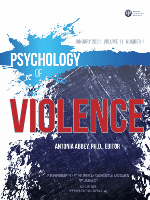
Arriaga, P., Adrião, J., Madeira, J., Cavaleiro, I., Maia e Silva, A., Barahona, I., & Esteves, F. (2015). A "dry eye" for victims of violence: Effects of playing a violent video game on pupillary dilation to victims and on aggressive behavior. Psychology of Violence, 5 (2), 199-208. https://doi.org/10.1037/a0037260.

Reis, E., Arriaga, P., Postolache, O. (2015). Emotional flow monitoring for health using FLOWSENSE: An experimental study to test the impact of Antismoking Campaigns, Proceedings of the IEEE International Conference on e-Health and Bioengineering (IEEE-EHB 2015), pp 1-4. https://doi.org/10.1109/EHB.2015.7391608
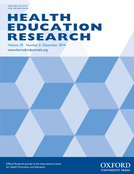
Fernandes, S., Arriaga, P., & Esteves, F. (2014). Providing preoperative information for children undergoing surgery: a randomized study testing different types of educational material to reduce children’s preoperative worries. Health Education Research, 29 (6), 1058-1076. https://doi.org/10.1093/her/cyu066

Arriaga, P., Esteves, F., & Feddes, A. (2014). Looking at the (mis)fortunate of others while listening to music. Psychology of Music, 42 (2), 251-268. https://doi.org/10.1177/0305735612466166.

Gaspar, A., Esteves, F., & Arriaga, P. (2014). On prototypical facial expressions vs variation in facial behavior: lessons learned on the “visibility” of emotions from measuring facial actions in humans and apes. In M. Pina and N. Gontier (Eds), The Evolution of Social Communication in Primates: A Multidisciplinary Approach. Series: Interdisciplinary Evolution Research (Vol 1, pp.101-126). New York: Springer International Publishing. https://doi.org/10.1007/978-3-319-02669-5_6.

Fernandes, S., Arriaga, P., & Esteves, F. (2014). Atitudes infantis face aos cuidados de saúde e perceção de dor: papel mediador dos medos médicos [Children’s attitudes regarding health care and pain perception: the mediator role of medical fears]. Ciência & Saúde Coletiva, 19 (7), 2073-2082. https://doi.org/10.1590/1413-81232014197.08992013

Arriaga, P., & Esteves, F. (2014). 100 anos depois: Onde está o Watson? Psicologia na Actualidade, 18, 18-35.
Rosa, P., Esteves, F., & Arriaga, P. (2014). Effects of fear-relevant stimuli on attention: Integrating gaze data with subliminal exposure. Proceedings of the IEEE International Symposium on Medical Measurements and Applications (MeMeA), p. 8-13. https://doi.org/10.1109/MeMeA.2014.6860021
Leal, A., Lopes, R., Arriaga, P., & Esteves, F. (2014). The brain mapping of emotion in human faces: Clinical application in epilepsy. Proceedings of the IEEE Internacional Symposium on Medical Measurements and Applications (MeMeA), pp. 46-49. https://doi.org/10.1109/MeMeA.2014.6860028.
2013-2012
Arriaga, P., Esteves, F., & Fernandes, S. (2013). Playing for better or for worse? Health and social outcomes with electronic gaming. In M. M. Cruz-Cunha, I. M. Miranda, & I. Gonçalves (Eds.), Handbook of Research on ICTs for Human-Centered Healthcare and Social Care Services (pp. 48-69). Hershey, PA: IGI Global. https://doi.org/10.4018/978-1-4666-3986-7.ch003.
Madeira, F., Arriaga, P., Adrião, J., Lopes, R., & Esteves, F. (2013. Emotional Gaming. In Y. Baek (Ed.), Psychology of Gaming (pp. 11-29). New York: Nova Science Publishers. ISBN: 978-1-6241 7-577-0.

Rosa, P. J., Esteves, F. & Arriaga, P. (2012). Ver ou não ver, eis a questão. A relação entre atenção visual selectiva e emoção. In-Mind Português, 3 (1-4), 15-24.
Silva, S., Carneiro, P., & Arriaga, P. (2013). A Influência dos estados emocionais e tipo de processamento na produção de memórias falsas. In A. Pereira, M. Calheiros, P. Vagos, I. Direito, S. Monteiro, C. Fernandes da Silva, & A. Allen Gomes (Org.), Actas do VIII Simpósio Nacional de Investigação em Psicologia (pp. 52-61). Associação Portuguesa de Psicologia. ISBN: 978-989-96606-1-8.
Adrião, J., Arriaga, P., & Esteves, F. (2013). Emoções num piscar de olho: Brincar com a violência e reflexo de sobressalto durante a exposição a estímulos afetivos. In A. Pereira, M. Calheiros, P. Vagos, I. Direito, S. Monteiro, C. Fernandes da Silva, & A. Allen Gomes (Org.), Actas do VIII Simpósio Nacional de Investigação em Psicologia (pp. 512-522). Associação Portuguesa de Psicologia. ISBN: 978-989-96606-1-8.
2011-2010

Arriaga, P., Monteiro, M. B., & Esteves, F. (2011). Effects of playing violent computer games on emotional desensitization and on aggressive behaviour. Journal of Applied Social Psychology, 41 (8), 1900–1925. https://doi.org/10.1111/j.1559-1816.2011.00791.x

Arriaga, P., Gaspar, A., & Esteves, F. (2011). Playing with violence: An updated review on the effects of playing violent electronic games. In M. M. Cruz-Cunha, V. H. Carvalho, & P. Tavares (Eds), Business, Technological and Social Dimensions of Computer Games: Multidisciplinary Developments (pp. 271-292). Hershey, PA: ISI Global. https://doi.org/10.4018/978-1-60960-567-4.ch017.

Arriaga, P., Félix, N., & Ulrich, E. (2011). Psicologia das crises e das catástrofes: O importante papel de factores cognitivos e afectivos na percepção de risco de terrorismo. In Carvalho, M. (Ed.), Estudos sobre Intervenção Psicológica em Situações de Emergência, Crise e Catástrofe (pp. 7-32). Portimão: ISMAT. ISBN: 978-989-97781-0-8.
Fernandes, S., & Arriaga, P. (2010). The effects of clown intervention on worries and emotional responses in children undergoing surgery. Journal of Health Psychology, 15 (3), 405-415. https://doi.org/10.1177/1359105309350231
Esteves, F., Arriaga, P., Carneiro, P., & Flykt, A. (2010). Emotional Responses (verbal and psychophysiological) to pictures of food stimuli. Psicologia, XXIV (2), 89-111. https://doi.org/10.17575/rpsicol.v24i2.308
Rodrigues, A., & Arriaga, P. (2010). Haverá diferenças individuais na capacidade para detectar a mentira e a honestidade nos outros? Psicologia, XXIV (2), 43-60. https://doi.org/10.17575/rpsicol.v24i2.304
Arriaga, P., & Almeida, G. (2010). Fábrica de Emoções: A eficácia de excertos de filmes na indução de Emoções. Laboratório de Psicologia, 8 (1), 63-80. https://doi.org/10.14417/lp.649.
Stimuli at https://osf.io/bri3e/.
Arriaga, P., Franco, A., & Campos, P. (2010). Indução de emoções através de excertos musicais. Laboratório de Psicologia, 8 (1), 3-20. https://doi.org/10.14417/lp.645.

Rodrigues, A., & Arriaga, P. (2010). Deteção da mentira e da veracidade em estudantes universitários: diferenças de género e sua relação com a inteligência emocional. In C. Nogueira, I. Silva, L. Lima, A. T. Almeida, R. Cabecinhas, R. Gomes, C. Machado, A. Maia, A. Sampaio & M. C. Taveira (Eds.), Actas do VII Simpósio Nacional de Investigação em Psicologia (pp. 3076 -3088).

Matos, A., & Arriaga, P. (2010). O Impacto da exposição a imagens corporais na satisfação corporal e no comportamento alimentar. In C. Nogueira, I. Silva, L. Lima, A. T. Almeida, R. Cabecinhas, R. Gomes, C. Machado, A. Maia, A. Sampaio & M. C. Taveira (Eds.), Actas do VII Simpósio Nacional de Investigação em Psicologia (pp. 1349 - 1362).
2009-2005

Arriaga, P., Esteves, F., Carneiro, P., & Monteiro, M. B. (2008). Are the effects of unreal violent videogames pronounced when playing with a virtual reality system? Aggressive Behavior, 34 (5), 521-538. https://doi.org/10.1002/ab.20272.

Arriaga, P., Monteiro, M. B., & Esteves, F. (2008). Factores mediadores e moderadores dos efeitos dos jogos electrónicos violentos na agressão interpessoal. Revista Portuguesa de Pedagogia, 42 (2), 203-223. https://doi.org/10.14195/1647-8614_42-2_11

Arriaga, P., Esteves, F., & Monteiro, M. B. (2007). Violência em jogos electrónicos e reacções emocionais a imagens da vida real: a hipótese da dessensibilização. In M. B. Monteiro, M. Calheiros, R. Jerónimo, C. Mouro, & P. Duarte, Percursos de Investigação em Psicologia Social e Organizacional (Vol. II, pp. 119-143). Lisboa: Edições Colibri.

Arriaga, P., Esteves, F., Carneiro, P. & Monteiro, M. B. (2006). Violent computer games and their effects on state hostility and physiological arousal. Aggressive Behavior, 32 (2), 146-158. https://doi.org/10.1002/ab.20111

Arriaga-Ferreira, P., Carneiro, M. P., Miguéis, M. L., Soares, S., & Esteves, F. (2006). Jogos de computador violentos e seus efeitos na hostilidade, na ansiedade e na activação fisiológica. Revista Lusófona de Ciências da Mente e do Comportamento, 8 (1), 191-209.
Arriaga Ferreira, P., Baptista, A., & Oliveira, J. (2006). Atractividade e comportamento agressivo. Actas do VI Simpósio Nacional de Investigação em Psicologia (Vol. II), pp. 29-49.
2004-2000

Arriaga, P., Esteves, F. & Monteiro, M. B. (2004). Estudo psicométrico de duas medidas no âmbito da agressão humana. In J. Vala, M. Garrido e P. Alcobia, Percursos de Investigação em Psicologia Social e Organizacional (pp. 177-199). Lisboa: Edições Colibri.

Arriaga. P. (2003). Violência (ir)real? Contributo para uma reflexão acerca do impacto da violência dos jogos electrónicos nas crianças e nos jovens. Revista Caleidoscópio, 4, 95-106.

Arriaga. P., Costa, F., & Taborda, J. (2003). Atitudes de adolescentes face à doença mental. Intervenção Social, 28, 79-98

Arriaga Ferreira, P., Amaral, J., Pais Ribeiro, J., & Coelho-Moos, E. (2002). Controlo metabólico da diabetes e sua associação com a qualidade de vida. In I. Leal, I. P. Cabral, & J. L. P. Ribeiro, Actas do 4º Congresso Nacional de Psicologia da Saúde (pp. 263-269). Lisboa: ISPA.
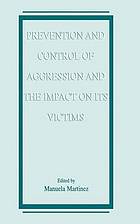
Arriaga-Ferreira, P., & Ribeiro, J. L. P. (2001). The relationship between playing violent electronic games and aggression in adolescents. In M. Martinez (Ed.), Prevention and control of aggression and the impact on its victims (pp. 129-135). New York: Kluwer Academic/Plenum Publishers.
Arriaga-Ferreira, P., Silva, A., & Esteves, F. (2001). Os efeitos de um jogo de computador nas aptidões perceptivas e espaciais. Psicologia: Teoria, Investigação e Prática, 2, 269-284.
Esteves, F., Carneiro, P., Arriaga-Ferreira, P., & Rosa, B. (2001). Psicologia Experimental – passado, presente e futuro. Revista de Humanidades e Tecnologias, 4/5, 220-222.

Arriaga-Ferreira, P. (2000). Reflexão sobre as estruturas sociais de apoio à criança: a especificidade das famílias de acolhimento. Intervenção Social, 21, 111-126.

Arriaga Ferreira, P., & Pais Ribeiro, J. L. (2000). Os jogos electrónicos na adolescência: estudo das diferenças entre sexos. In Pérez, R. P., Sevillano, A. P., Rodriguéz, M. G., Pérez, M. E., García, C. A., & Arizmendiarrieta, B. S. (Eds), Redes, multimedia y deseños virtuales (pp. 519-528). Oviedo: Serviço de Publicaciones de la Universidad de Oviedo.






























